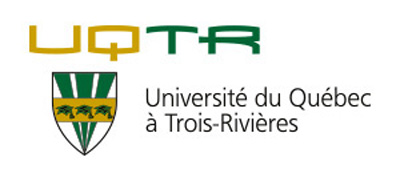Related projects
Discover more projects across a range of sectors and discipline — from AI to cleantech to social innovation.
Mitacs brings innovation to more people in more places across Canada and around the world.
Learn MoreWe work closely with businesses, researchers, and governments to create new pathways to innovation.
Learn MoreNo matter the size of your budget or scope of your research, Mitacs can help you turn ideas into impact.
Learn MoreThe Mitacs Entrepreneur Awards and the Mitacs Awards celebrate inspiring entrepreneurs and innovators who are galvanizing cutting-edge research across Canada.
Learn MoreDiscover the people, the ideas, the projects, and the partnerships that are making news, and creating meaningful impact across the Canadian innovation ecosystem.
Learn MoreGPS, MEMS sensors and Wi-Fi are three main candidate technologies for pedestrian navigation. GPS cannot provide reliable pedestrian navigation indoors because the GPS signals are degraded in indoor environments. MEMS sensors provide accurate but relative positioning solution for short time periods of standalone usages because of MEMS sensors’ errors characteristics. Wi-Fi can provide absolute location information by using pre-existing wireless infrastructures. However, Wi-Fi positioning requires special radio maps databases which is labour intensive and time consuming. Moreover, accurate orientation information from Wi-Fi cannot be provided in any of the existing methods. This research aims to improve the accuracy, reliability and accessibility of indoor navigation in two different ways for the current smart phones using GPS, Wi-Fi and MEMS sensors. Firstly, an algorithm is proposed to estimate the Wi-Fi heading by using clustering based and estimation based techniques. Secondly, when the GPS/MEMS sensors position solution is accurate, it is used to build the database for Wi-Fi positioning. Once the database is ready, Wi-Fi positioning is combined with the GPS/ MEMS sensors solution to provide the final robust positioning solution. The two algorithms will be used in the T-PN, the Trusted POSitioning Inc.'s Trusted Portable Navigator, for different real time systems such as Windows and Android based smart phones. The result will be a more robust and accurate navigation solution for deep indoor environments.
Dr. Naser El-Sheimy
Yuan Zhuang
Trusted Positioning Inc.
Engineering
Information and communications technologies
University of Calgary
Accelerate
Discover more projects across a range of sectors and discipline — from AI to cleantech to social innovation.
Find the perfect opportunity to put your academic skills and knowledge into practice!
Find ProjectsThe strong support from governments across Canada, international partners, universities, colleges, companies, and community organizations has enabled Mitacs to focus on the core idea that talent and partnerships power innovation — and innovation creates a better future.













































































































































































































































































































